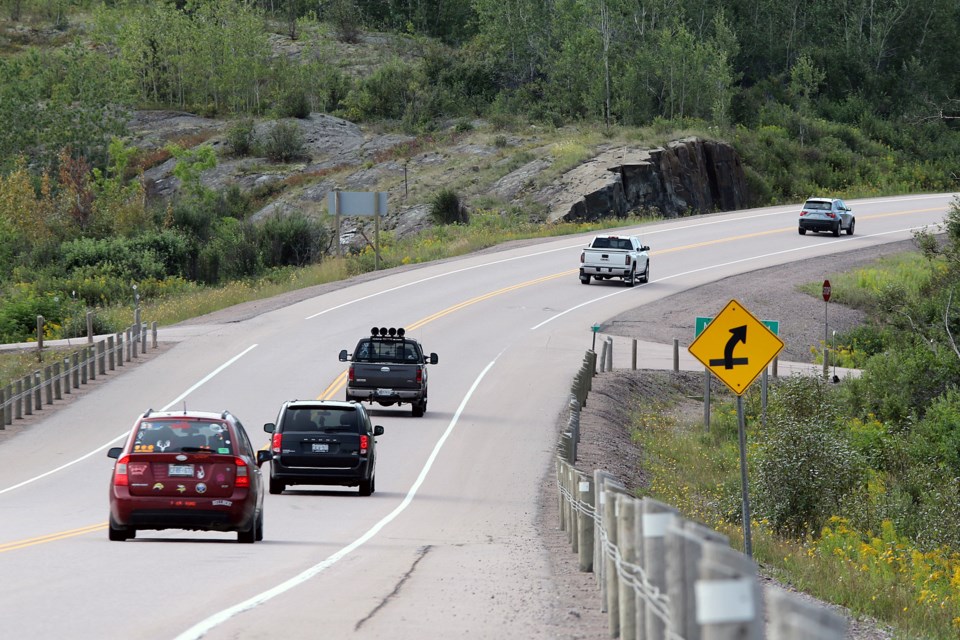KENORA, Ont. - The decision to restrict interprovincial travel is an effort to keep COVID-19 variants from western Canada from entering Ontario, says Kenora-Rainy River MPP Greg Rickford, though he hopes it will not be in place for long and there can soon be a return to a regional approach for reopening.
“What has become remarkable about the stage, the wave we are in right now, is the variants, particularly the U.K. and Brazilian variant, which are coming from western Canada,” Rickford said during a virtual media conference on Monday.
“I hope this isn’t going to last very long, but we will have to see a decrease in those numbers.”
Restrictions on non-essential interprovincial travel came into effect on Monday. The new measures were introduced last Friday by the Ford government along with a two-week extension of the province-wide stay-at-home order.
Ontario has been reporting record daily cases numbers in recent days, with 4,447 reported on Monday. Hospitalizations are also at record highs, with 2,202 people admitted with COVID-19 and 755 in intensive care units.
The majority of new COVID-19 cases in Ontario are the result of a variant of concern.
Rickford said the interprovincial travel restrictions are about reducing mobility because variants of concern are spreading rapidly in parts of western Canada.
“It does apply to cottagers,” he said. “There are narrow exclusions. This is a stay-at-home order first and foremost. The OPP have the ability to enforce that for non-essential travel. There may be folks here and they can pass back into Manitoba unimpeded.”
Ontario Provincial Police have set up checkpoints at points of entry along the Manitoba border, which will be monitored 24-hours a day.
According to Const. Jason Canfield with the Kenora OPP, between 150 and 175 vehicles have passed through the border near Kenora since the restrictions came into effect and only one has been turned away.
Permitted reasons for crossing the border include medical appointments, work, transportation of goods, those travelling through Ontario to another destination, and Indigenous people exercising treaty rights.
Traffic travelling from Ontario to Manitoba is not stopped and Ontario residents returning to the province are permitted to enter.
“If people are coming to Ontario to their principal residence, we would not be stopping them,” Canfield said. “We are not stopping people going out.”
All personal vehicles are stopped to allow officers to speak with the occupants to ensure they are travelling to the province for an essential reason, while transport trucks are permitted to pass unimpeded.
Canfield said with the stay-at-home order in place there is less traffic in regional communities and cities and manning checkpoints is not taking away human resources from other policing activities.
“We always hope that people will make the right decision to not travel if they don’t need to, especially with the stay-at-home order in Ontario,” Canfield said.
“There are penalties we could impose. But education is always going to be our first point of attack. We are not out to charge people, but if it’s needed or we feel the education is not working, we could impose a fine.”
Northwestern Ontario businesses have been hit hard due to COVID-19 restrictions and Rickford said the government will continue to offer support through the Northern Ontario Recover Program.
‘We continue to do what we have been doing. It continues to provide significant relief,” he said. “We have doubled down on the small business support program. This is working very well. People are getting portions to their taxes, energy bills, and resources to pay for PPE. Being able to do it a second time as we stare down his third wave.”
Rickford added that the province is still at risk and he is confident that as people continue to follow public health measures the numbers will continue to decline and could mean the easing of restrictions.
“There are signals that this will be an effective way to combat the spread of COVID and the variants and I hope in the next couple of weeks we can pivot to a regional model, especially when it comes to schools, if our numbers improve,” he said.
